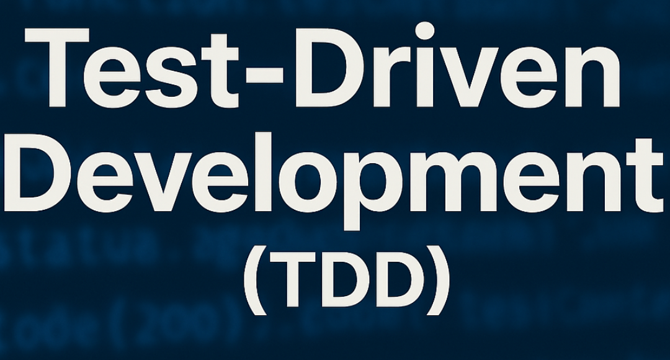Medium
4w
84

Image Credit: Medium
Test-Driven Development (TDD): Good Code from Day One
- Test-Driven Development (TDD) is a software development approach that involves writing tests before writing actual code.
- TDD ensures that developers carefully consider requirements and expected outcomes upfront, leading to more reliable and maintainable code.
- By following TDD, code becomes better structured, easier to understand, and less likely to miss critical edge cases.
- The suite of tests built during TDD serves as a safety net for future changes and refactoring, reducing risks.
- TDD helps developers strike a balance between speed and quality, enabling them to move fast with confidence.
- TDD involves writing tests that fail initially, followed by writing code to pass those tests, and then refactoring the code.
- The TDD Cycle involves writing a failing test, implementing code to pass the test, and refactoring the code, promoting small, manageable changes.
- TDD is applicable in various software development environments and offers advantages such as reliability, maintainability, and ease of understanding.
- Common testing tools for TDD include unittest and pytest for Python, JUnit for Java, Jest and Mocha for JavaScript, RSpec for Ruby, and NUnit for C.
- Integrating TDD with CI/CD pipelines ensures that tests run automatically with each code change, maintaining code quality and testability.
Read Full Article
5 Likes
For uninterrupted reading, download the app